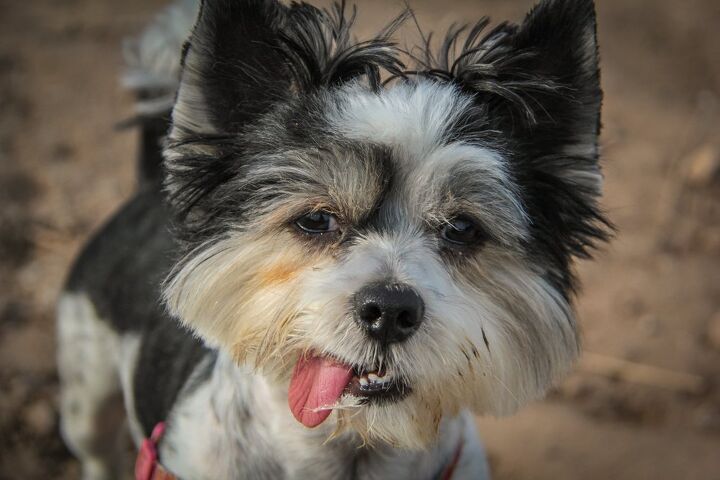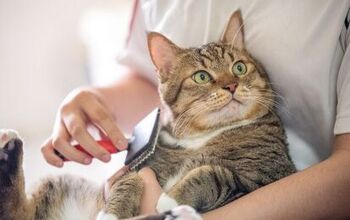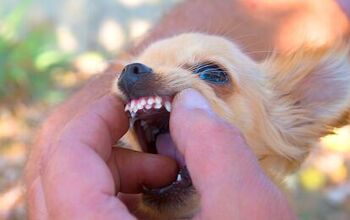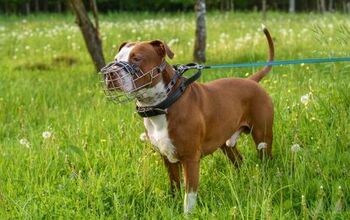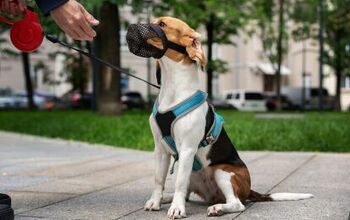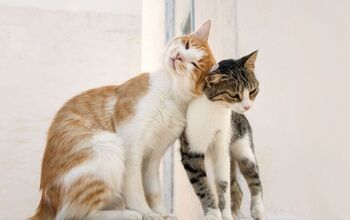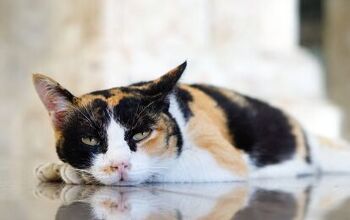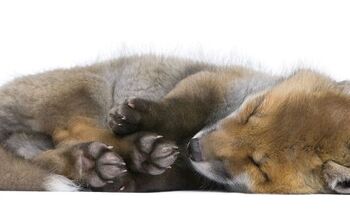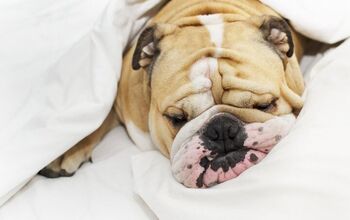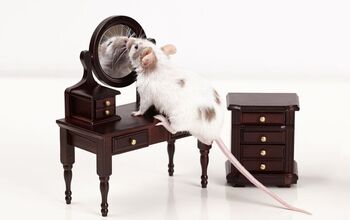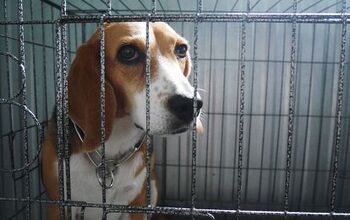Torkie


About Torkie
Torkie Basics
Have you ever wondered what a Yorkshire Terrier would look like with a shorter, scruffy coat? The Torkie holds the answer to this question. These pint-sized pooches are cute as a button! Of course, charming appearance is not all that makes the Torkie popular among pet owners. This adorable little hybrid boasts a lively nature, bright mind, and a big heart. He is a perfect pet for a single living in an apartment, or an active senior looking for a vivacious pooch to spend their retirement with. Owing to their petite size and nippiness towards those who bother them in any way, these designer dogs are not a good fit for families with young children.
As a designer dog breed, the Torkie is not a purebred- but rather a mix of two purebred parents. The mom and dad of this crossbreed are- you guessed it- a Yorkshire Terrier and a Toy Fox Terrier. These two small but sassy doggos produce a toy dog with a lot of spunk. In most cases, the mixed breed offspring offers best of worlds, a golden middle of the two terriers, if you will.
Needless to say, there are many pawrents out there who love scruffy and cheeky pooches, so these recent and rare hybrids are quickly gaining popularity. However, despite all their qualities, Torkies are not an ideal match for every family and living situation. To find out more about these dogs and whether they make a good fit for you- read on!
Origin
Designer dogs are a fairly recent trend in the world of canine breeds. While dogs of mixed purebred origin have existed throughout history- from Queen’s Elizabeth’s accidental Dorgis to many other unplanned litters all over the world- it’s only nowadays that the crossbreeding is actually intentional, rather than accidental and unwanted. The hybrid craze started with the Labradoodles and the success this mix had, so many, many others followed suit in crossing purebred dogs.
Naturally, the sudden influx of crossbreeds, as well as the fact that some of the mixes were common even before the designer dog label became popular, made it impossible to know the origin of most of the individual hybrids. Torkie has the same fate- no one can claim with certainty when or where the breed was born. The next best thing, though, is looking at the overall history of hybrid breeds for more clues. This would put the origin of the Torkie somewhere in the United States, sometime in the last 30 years.
Pedigree
Only dogs who have the status of purebreds are eligible for official pedigree papers. Their family trees are carefully recorded to have proof of intact purebred lineage and good breeding. With designer dogs, things are a little bit different. Even if you are getting a Torkie puppy from a breeder rather than adopting one, it’s highly likely there won’t be any pedigree papers. However, the purebred parents of your mixed breed dogs will have them, if that kind of thing is important to you.
The Torkie is a mix of Yorkshire Terrier and Toy Fox Terrier. Naturally, the parents will have a lot of influence on the looks and behavior of the puppies. Make sure to always look for a reputable breeder who carefully selects his stock and cares for his litters, rather than get a puppy from a pet store or a puppy mill. In the case you got your Torkie from a shelter or a rescue and don’t know much about his parents, don’t fret. What we know about the parental breeds is more than enough to know what to expect from their mix.
As the offspring of two terrier breeds that started out as vermin hunters, the Torkie will have a high prey drive and a lot of energy. They will not grow very big as both mom and dad are toy sized. Owing to the decades of selective breeding of the parental breeds, the Torkie will also be ideally suited for the role of a companion and pet.
Food/Diet
All dogs need a nutritious, well-balanced diet if you want them to stay healthy and have a long life. Most experts and seasoned pet owners find dry food to be the best option for their dog. When chosen properly and with care, kibble can meet all of your pet’s dietary needs and support their overall health. Like most dogs, the Torkie will also do well on high-quality dry food for dogs. They need premium kibble, made from natural high-grade ingredients that are formulated to suit their individual requirements. That means that they need dry food appropriate for their size and activity level, as well as their age group (puppy, adult, senior). In the majority of cases, small breed or toy breed formula is your best bet.
As a pint-sized pupper that usually isn’t too picky about their meals, the Torkie is at a higher risk for obesity. These small dogs can easily get diabetes, joint issues, and many other health issues if you let them overeat. Make sure to stick to recommendations on the kibble bag and don’t give your pet too many yummy treats. Usually, Torkie won’t need more than a cup of quality kibble per day.
If you have a bit of previous experience as a dog owner and use the right approach, you shouldn’t have any issues training your Torkie.
Training
Torkies are smart little dogs, but they are known to have a stubborn streak. With both of their parents being terriers, it would be impossible for these crossbreeds not to have a bit of an attitude, after all! Despite this, the Torkie is not a breed that is too difficult to train. If you have a bit of previous experience as a dog owner and use the right approach, you shouldn’t have any issues teaching your Torkie to behave.
As with all dogs, it’s important to assume the position of the pack leader early on. Be confident and firm, without being harsh, and your pooch will know who the boss of the house is. Rely on positive reinforcement techniques of training, as they work best with Torkies. Use favorite treats and praise to motivate your new pet to follow commands and you’ll get their attention in no time.
In addition to basic training, you should make sure to provide timely socialization for your dog. Being around different people, children, and other pets from their young age will turn them into a friendly, easy-going dog. Trying to socialize them with small pets such as gerbils or hamsters is not the best idea- your Torkie might view any animal smaller than them as prey, rather than a potential roommate.
Weight
The Torkie is very petite and would be considered a toy breed. On average, their weight in adulthood is between 7 to 10 pounds, and they stand at 8 to 9 inches at their withers.
Temperament/Behavior
Every dog is unique- their genetics, lifestyle and amount of training and socialization they have received throughout their early years will significantly influence their temperament and behavior. Of course, there are some general personality traits that most Torkies usually have, all thanks to their unusual parentage. As their mom and dad, these crossbreeds will be lively, cheerful little dogs with a lot of love for their family. They will use every opportunity they have to snuggle up to you and expect to be pampered in return.
Smart and curious, your Torkie will have a high prey drive and will try to chase after small animals. This is important to know because you shouldn’t let them off leash in unsecured areas or backyards that are not properly fenced. They might be velcro dogs when you’re inside, but once they’ll see a tempting squirrel, they’ll bolt right off.
Torkie is loyal to a fault, alert, and distrustful of strangers- all of which makes him a great watchdog. He will bark to let you know if something is suspicious or if someone’s coming, but make sure to monitor if their watchfulness becomes yapiness. You wouldn’t want your neighbors complaining!
Common Health Problems
While some people believe that the concept of hybrid vigor applies to designer dogs simply because they are crossbreeds, it’s not exactly true. Designer dogs such as Torkie are not true hybrids, so they are still prone to health issues that their parents are prone to- although sometimes that risk can be lower. As a Yorkshire Terrier and Toy Fox Terrier mix, your pet might be at risk for patellar luxation, hypoglycemia, collapsed trachea, Legg-Calve-Perthes disease, and issues with eyes.
Small dog breeds are prone to teeth plaque buildup and are more likely to suffer from oral health issues due to bad diet than their larger fellows. Make sure to brush their teeth regularly to avoid early tooth loss.
Life Expectancy
The average lifespan of the Torkie is between 13 and 15 years.
Exercise Requirements
The small and sassy Torkie might be energetic and lively, but he’s still a pint-sized pooch. It doesn’t take a lot to tire this dog out! For this reason, they make a good apartment pet. A great deal of their exercise needs can be met indoors, of course, paired with daily time outside on fresh air. Take your Torkie on a few daily walks, to play in the local dog park or simply play fetch with them in a secure backyard. Whatever your dog likes best- you’ll be good as long as you devote circa 45 to 60 minutes to exercising each day.
As a smart dog with terrier parentage, the Torkie will get bored easily. To prevent their boredom from evolving to depression and destructive behaviors, make sure their bright mind is challenged enough. Offer puzzle toys or stimulative playtime, or make sure they have a furry sibling to play with.
These designer dogs are lively but don’t need much exercise- they make a good apartment pet.
Recognized Clubs
The American Kennel Club and other major international canine clubs don’t recognize Torkie as a breed- not unlike all designer dogs. However, there are smaller organizations that do accept crossbreeds into their fold. Those of them who recognize the Torkie are American Canine Hybrid Club, Designer Breed Registry, Designer Dogs Kennel Club, Dog Registry of America, and International Designer Canine Registry. The breed is also known as Toy Fox Yorkie or Toy Torkie, but these are not official names.
Coat
The Yorkshire Terrier parent of the mix flaunts long, silky locks, whereas the Toy Fox Terrier has short, sleek coat. The complete opposites of the spectrum! As a result of this huge difference in hair type of his parents, the Torkie’s coat will vary greatly from dog to dog. Some might favor the Yorkie and have finer hair in trademark bi-color pattern, others might resemble the Toy Fox Terrier more. However, in most cases, these dogs look like Yorkies in terms of coloring, but with a scruffy medium length coat. They are not hypoallergenic but they don’t shed much, either. Brush them a few times a week to prevent matting and remove any loose hair they might have.
Puppies
Torkie puppies are so tiny it will melt your heart! Unfortunately, this also means that they are very fragile and susceptible to injuries, as well, so be very careful around them. No playing with children unless there’s supervision or careless handling- even a small low drop could result in a broken limb.
Start with basic training and socialization from an early age for best results. Puppies who go through obedience training and are exposed to various people, animals, and situations are certain to grow up into well-tempered dogs with a sweet nature.
Photo credit: Dmitriy Spirin/Shutterstock; Helen E. Grose/Shutterstock

A proud mama to seven dogs and ten cats, Angela spends her days writing for her fellow pet parents and pampering her furballs, all of whom are rescues. When she's not gushing over her adorable cats or playing with her dogs, she can be found curled up with a good fantasy book.
More by Angela Vuckovic



